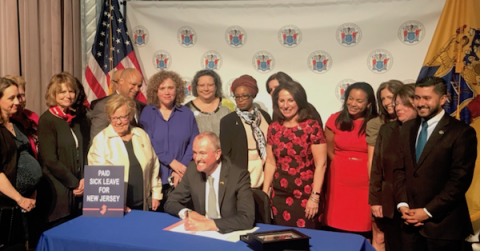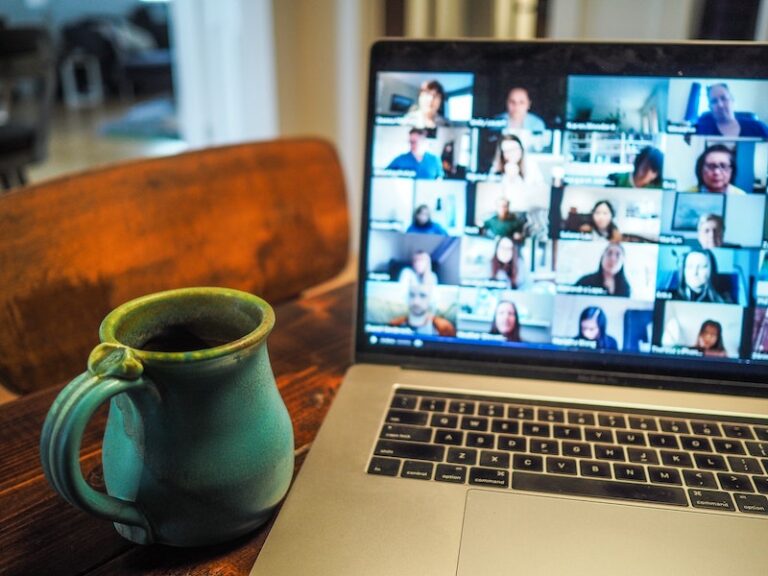With a bill signing by Governor Phil Murphy Wednesday, May 2, New Jersey becomes the tenth state with an earned sick and safe days leave law, furthering a nationwide trend that has been gathering steam for the past several years. Karen White, Director, Policy Analysis and Community Engagement, Center for Women and Work (CWW), Rutgers School of Management and Labor Relations explains the critical need for the new law and how it will provide some fairness for more than a million New Jersey workers.

Question: What changes will occur as a result of this law?
Karen White: The Earned Sick and Safe Days law will allow New Jersey workers to accrue one hour of sick leave for every 30 hours worked up to a maximum of 40 hours, or five days per year. That’s 40 hours/five days of job protected, paid sick leave for over one million workers in New Jersey who currently do not have it. Workers can use the time to take care of themselves and family members. The sick time can also be used by victims of domestic violence for medical attention, counseling, relocation, legal or other services.
Q: What is the importance of this legislation for those directly impacted?
KW: It is sad to say that without earned sick days, far too many families in New Jersey have suffered financial and health setbacks because they had to make hard choices about taking a day off or not. It should not be a luxury for a worker to care for herself or a sick family member without losing pay instead of going to work, sending a child to school sick, or leaving a sick child at home while hoping that nothing bad happens.
Q: What have you heard from individuals about the need for earned sick days?
KW: At the signing ceremony, Safiyyah Amin, a working mother in New Jersey, shared her story of taking her sick child with her on two long bus rides to work because she feared losing her job and could not afford to miss pay if she stayed home to care for him. “As a wife and a mother of children with disabilities, I would always go to work sick because I knew I’d lose wages,” she said. In the nearly 20 years between the bus rides Safiyyah describes and today not much had changed.
But now, with the enactment of earned sick days legislation, workers like Safiyyah will be able to take the time needed to care for themselves and their families without the risk of lost wages or worse—their jobs.
For Rutgers Center for Women and Work, it is a culmination of 15 years of research and policy analysis on paid leave policies and the impact they have on workers, their families, businesses and the community. During this time, we’ve encountered countless examples of hard-working, low-wage workers struggling to care for their families’ health and financial well-being. Now, this new law will soon help these working families in meaningful ways, helping to close the gap that they experience in managing family caregiving and work.
We are now looking forward to collaborating with the New Jersey Department of Labor Workforce Development on outreach and education efforts to make sure working families and their employers understand the rights and responsibilities of the new law.
Q: What is the importance of this legislation for those of us who already have sick days?
KW: For those of us who already have earned sick days from our employers or guaranteed by union contracts, this law does several things. First, it mandates that you may use your sick days for caring for family members, (family is defined as ‘a child, grandchild, sibling, spouse, domestic partner, civil union partner, parent, or grandparent of an employee, or a spouse, domestic partner, or civil union partner of a parent or grandparent of the employee, or a sibling of a spouse, domestic partner, or civil union partner of the employee, or any other individual related by blood to the employee or whose close association with the employee is the equivalent of a family relationship’). Additionally, with all workers, including those in most service sectors that deal directly with the public, there is a significant public health benefit. These workers will no longer have to serve you food, care for your children in daycare, and your parents in adult care while they are sick.
Additionally, the law includes provision for victims of domestic violence or sexual assault with paid time to attend to health, well-being needs including court appearances and relocation.
Q: How has this legislation impacted businesses in the New Jersey cities that implemented it previously?
KW: Research we conducted at the Center for Women and Work studying Jersey City’s sick days ordinance one year after it was implemented showed that there were little to no negative impacts on businesses. For businesses that changed policies to adhere to the law, 41% reported positive impacts. Research in other states that have enacted paid sick day laws show similar results.
Q: Might advocates seek to strengthen or expand on this bill in the future?
KW: While the law is a great step forward, there are many ways in which it can be strengthened to make sure all workers and their families have time to care. For instance, currently the law excludes per diem workers in healthcare; the number of days per year (five) could be expanded, and it does not allow municipalities or other jurisdictions within the state from making enhancements to serve the needs of their residents.




